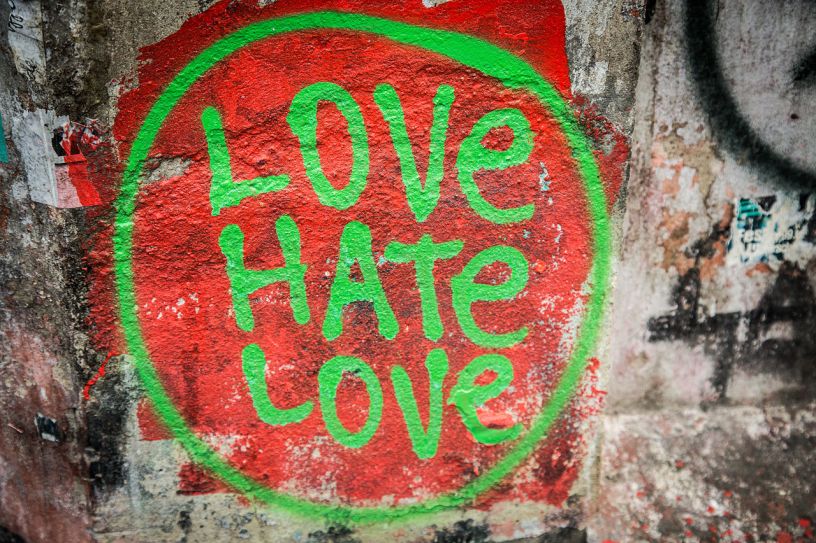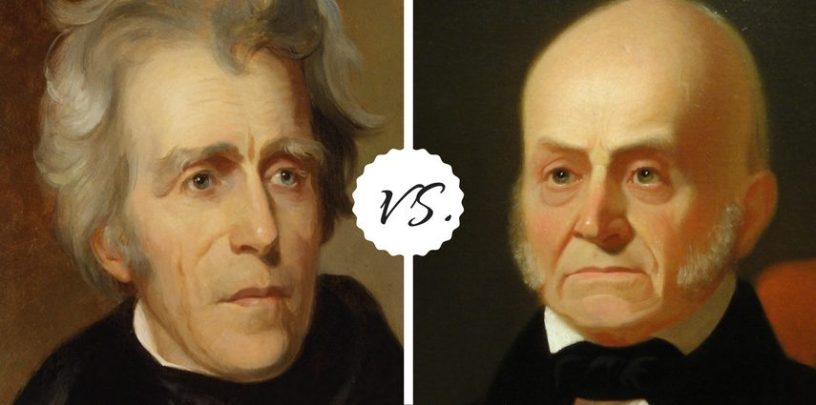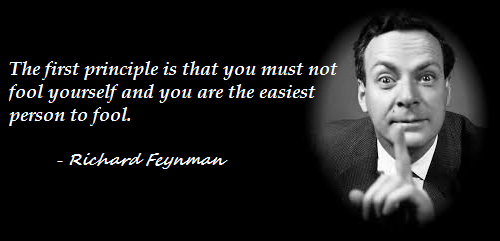To all my friends who are stressing about this election:
Our country has been through worse in relatively recent times.
I know it seems like the gates to hell are opening and the barbarians are storming the castle. I know it seems like our institutions, and even our fellow citizens, have failed us. I know it seems like ignorance and fear are winning out.
But the key word in all that is “seems”.
History has many lessons to teach us, and it is often said that the affairs of humankind are cyclical. If you think this is the worst election ever, or if you think our politics have never been so divisive, or if you think things have never looked so bleak, allow me to point out a very important bit of history: the 1968 Presidential election.
The vast majority of people reading this (myself included) were not alive during the election of ’68, and the few who were alive were too young to really understand the politics involved. But let’s go back and reflect on how BATSHIT CRAZY that election was, and I’m sure you’ll see that 2016 pales in comparison.
’68 was a tumultuous time in US and world history. A brief summary of events.
The War:
The US was embroiled in the Vietnam War, a bloody, incredibly unpopular, extremely expensive military movement that served as a dark cloud over everything going on domestically in the US.
Keep in mind that the US Military draft was still in effect. If you were a young man, you had to worry about getting pulled into this awful conflict against your will. During this year, the Johnson administration called for a ceiling of 549,500 American soldiers in Vietnam. Let me put that in perspective: The most troops we ever had in Iraq in 2003 was around 145,000.
The War was so unpopular that the Democrat party was fracturing. Lyndon Johnson, President at the time, announced in March that he would not run for re-election. This was on MARCH 31, just over 7 months out from the freaking election. The race for President got way more interesting (in other words, chaos).
The Candidates:
LBJ stepped out because people were tired of the damn war, but also because he worried he might actually die in office if he won (ironically he did die just 2 days after his 2nd elected term would have ended). His departure opened the door for other Democrats to step up. Two heavy hitters emerged from the fracturing party: LBJ’s Vice-President, Hubert Humphrey and John F. Kennedy’s brother, Attorney General/Senator Robert F. Kennedy. Humphrey was in the lead early but a decisive Kennedy win in the California primary made the race much closer.
On the Republican side you had Richard Nixon, who used the Civil Rights strife to run on a “law and order” platform (sound familiar?)
And, running as an Independent, Alabama Governor George C. Wallace. He LITERALLY ran on a racist platform. In his 1963 Inaugural Address as Governor he said that he stood for “segregation now, segregation tomorrow, segregation forever.” Wallace wanted to pull out of Vietnam within 90 days of taking office and said foreign aid was money “poured down a rat hole” and demanded that European and Asian allies pay more for their defense.
Wallace chose a former general as his VP running mate, and here’s an awesome quote from him regarding NUCLEAR WEAPONS: “I think most military men think it’s just another weapon in the arsenal… I think there are many times when it would be most efficient to use nuclear weapons. … I don’t believe the world would end if we exploded a nuclear weapon.”
Sound familiar? I mean, the similarities to Trump stuff are uncanny, right? But wait…there’s more. A crapton more.
The Civil Rights movement:
It wasn’t just the War that influenced the election, it was the huge Civil Rights movement, led by Dr. Martin Luther King, Jr. Black citizens were fighting for their right to vote, fighting to end segregation, fighting to have a fair place in American life in general. And it was causing a huge rift in the nation, particularly between the North and the South. This was also the point that racist Southern Democrats left the party (George Wallace himself was a Democrat before he went Indie).
If you think Black Lives Matter is a big deal, it doesn’t even hold a candle to what was going on in ’68.
Europe was batshit crazy in ’68 too:
In March of ’68 in Czechoslovakia (yes, that used to be a country), Antonin Novotny, a communist of the Stalinist variety, resigns the Czech presidency, setting off a crisis as a reformer takes over and the Soviet Union (and its allies) try to stop it. There are rumblings of war, and then there’s actual war. The Soviets and their allies send 200,000 troops to end the “Prague Spring”.
In France, student and worker revolts lead to chaos in the country. As many as ELEVEN MILLION workers go on strike. People seriously wonder if the country is about to head to civil war.
Everybody gets shot:
In April, Martin Luther King is assassinated: one of the most pivotal points of American History.
In June, Andy Warhol is shot (but lives) by Valerie Solanis, a struggling actress, and writer (who was also batshit crazy).
TWO DAYS LATER, Robert F. Kennedy is shot while doing press for his California victory. He dies.
Let that sink in: one of the leading Democrat candidates, the hope of millions of people, who just won the primary of the largest state in the country, killed just five months before the election.
The effect was particularly crushing for African Americans. Their two greatest champions were both violently killed in rapid succession. Tensions ran high.
Democrat turmoil continues (and there were still issues with police):
The Progressive Left looked about ready to split wide open. The Democratic National Convention was in Chicago that year. On that Monday night, demonstrations and anti-war protests were widespread, but generally peaceful. The next two days, however, brought increasing tension and violence to the situation.
By most accounts, on Wednesday evening Chicago police took action against crowds of demonstrators without provocation. The police beat some marchers unconscious and sent at least 100 to emergency rooms while arresting 175.
The Election:
Yes, America voted for Nixon that year. But keep in mind that he wasn’t that particularly scary at the time, and with the unpopularity of the war, Democrats were not looked upon fondly, and reasonable people weren’t going to vote for Wallace so that left Nixon as the only option. Some people even speculated that outgoing President Johnson actually preferred Nixon over his Democrat challenger (who was Johnson’s own VP, though the two did have disagreements about the war). It was only later that Nixon proved to be batshit crazy.
The bigger takeaway from that election was this: racist ass, crazy ass George Wallace only won 13.5% of the popular vote in a time that was pretty racist and pretty crazy overall. Now, to be fair, he did win five states (all in the Deep South), and proved that racist tactics could get votes – but not ENOUGH votes. He couldn’t even win all of the South (Wallace even lost South Carolina). And it’s been 50 years since we’ve had someone run on a platform as openly racist as his and get all the way to Election Day (hello Mr. Trump).
If 1968 showed us anything, it was this: a lot of good things can happen after a short period of unadulterated shit. The year after ’68, we put human beings on the moon and had Woodstock, starting the weird cultural revolution of the 70s. We had the excess of the 80s, the irreverent, colorful 90s, the technology boom of the 2000s. We’ve had our first black President and probably almost had our first woman President too. Europe settled down, communism turned out to be nothing to worry about, the Soviet Union fell apart and the Cold War ended. We still have much to do, but we’ve accomplished a lot too.
So guys, really. REALLY. Calm your nerves a bit. This year is bad, yes, but it isn’t THAT bad. Don’t let one odd year distract you from the more important work of making progress.








